Have you ever wondered how search engines identify the countless pages on your website?
They do it with the help of sitemaps.
Without a sitemap, your content risks being lost on the internet, unseen by both your audience and search engines. This is where sitemap generators come into the picture.
Sitemap generators simplify the process of creating sitemaps, making it easy to ensure your site is search-engine-friendly.
In this post, we’ll discuss what sitemap generators are, why they matter, and discuss the five best sitemap generators.
So, without any further ado, let’s get started.
A sitemap generator tool is a software application or online platform designed to generate sitemaps for websites, either in XML, HTML, or other formats.
Sitemaps are essential for guiding search engine crawlers to the most important pages on your website, ensuring they’re indexed correctly. These tools automate the process, saving time and effort, especially for websites with complex structures or frequent updates.
Importance of a Sitemap Generator
Sitemap generators play an important role in the success of a website’s SEO strategy and overall performance.
They’re designed with simplicity in mind, allowing even those with minimal technical knowledge to create professional-quality sitemaps.
Sitemap generators help ensure that all the important pages on a website are discoverable by search engine crawlers. Without a sitemap, some pages, especially those buried deep down within the site’s structure, may remain unindexed.
For non-technical users, manually creating a sitemap may be a daunting task. Sitemap generators provide an easy way to generate accurate sitemaps without requiring coding or technical expertise.
Large websites with thousands of pages, such as e-commerce platforms, can greatly benefit from sitemap generators. These tools automatically identify and include relevant URLs, saving time and ensuring no page is left out.
Let us now discuss the best sitemap generators.
2.1 WordPress Sitemap
Since the release of WordPress 5.5, websites now automatically generate sitemaps, making it easier for search engines to crawl and index your content.
The default sitemap for any WordPress site running version 5.5 or later can be accessed at [yourdomain.com]/wp-sitemap.xml or [yourdomain.com]/sitemap.xml.
Before checking your sitemap, ensure that your website is set to allow search engine indexing. If this setting is disabled, you may encounter a 404 error. To enable search engine visibility, navigate to Settings → Reading in your WordPress dashboard.
Ensure the Search engine visibility checkbox is not selected.
Once this is confirmed, open a browser and type [yourdomain.com]/wp-sitemap.xml to view the automatically generated sitemap.
The content displayed in your sitemap will depend on the type of content present on your website.
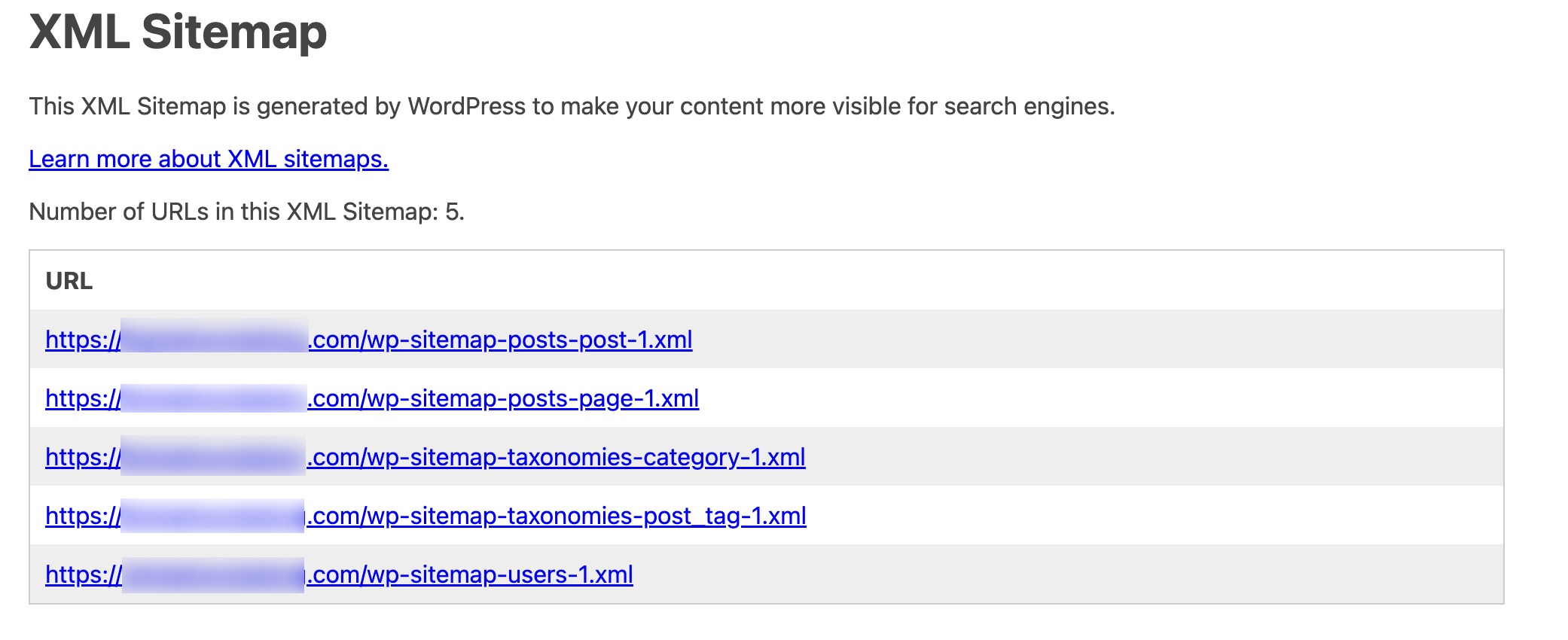
For example, a typical WordPress sitemap can include sections like:
- Posts
- Pages
- Categories
- Tags
- Post formats
- Users
If your WordPress site uses an older version (before 5.5), you’ll need a plugin to generate a sitemap. Popular plugins like Rank Math provide robust features for creating and managing sitemaps on older WordPress installations.
2.1 Rank Math SEO (WordPress Plugin)
The Rank Math sitemap generator is a powerful feature integrated into the plugin.
It provides an easy way to create and manage XML sitemaps, ensuring that search engines can efficiently crawl and index your website.
So, if you haven’t installed Rank Math on your website yet, consider doing so.
You can refer to our dedicated tutorial on installing a plugin on your WordPress website.
Rank Math automatically generates and updates sitemaps according to your site’s content, including posts, pages, categories, images, and custom post types. Its interface makes it easy to configure which pages or sections should be included or excluded from the sitemap.
Setting up sitemap settings is quick and easy in Rank Math. Start by navigating to WordPress Dashboard → Rank Math SEO and enable the Sitemap module, as shown below.
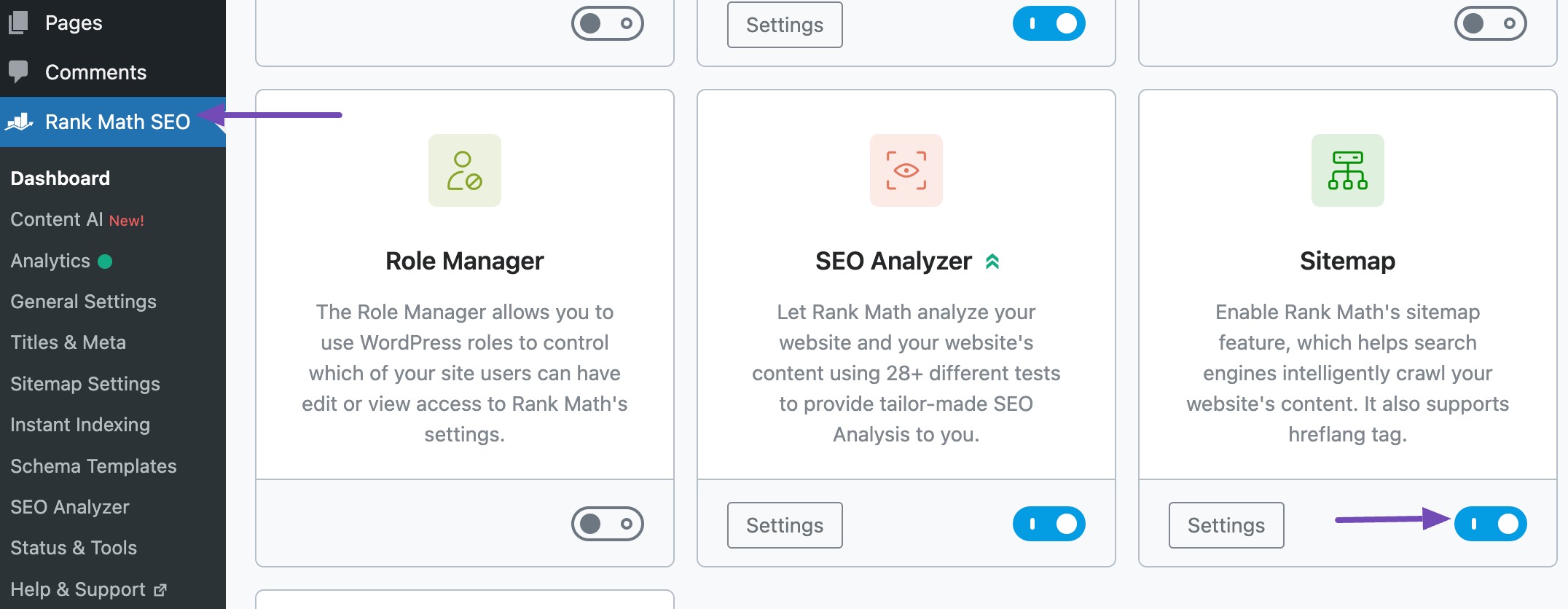
To view your XML sitemap, navigate to Rank Math SEO → Sitemap Settings, where the URL to your XML sitemap will be displayed at the top of the page.
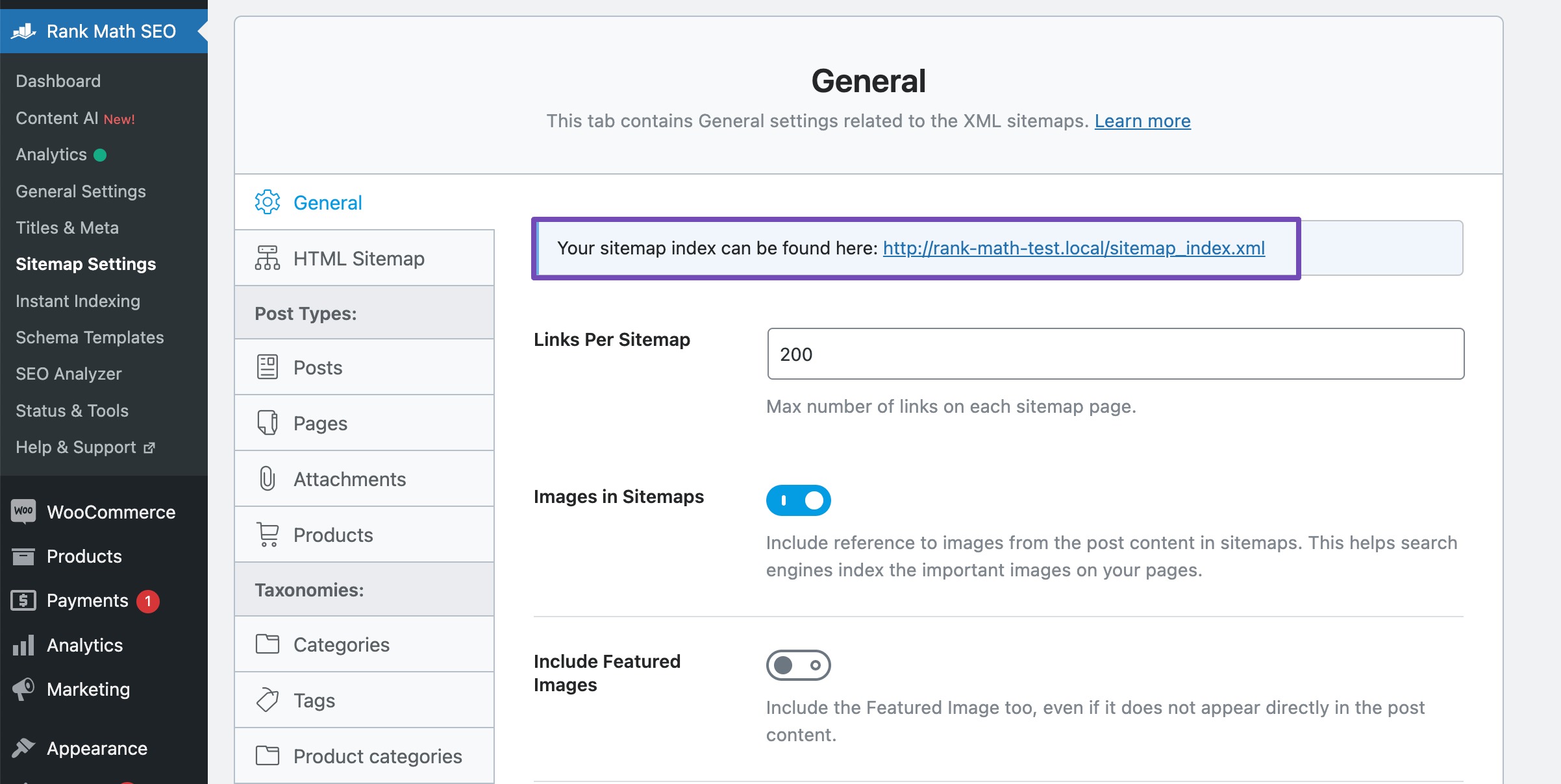
Your XML sitemaps will appear below.

Refer to our dedicated tutorial to configure your XML sitemap using Rank Math.
You can also easily generate HTML sitemaps, news sitemaps, custom sitemaps, video sitemaps with the help of Rank Math.
Rank Math offers a free version and paid versions beginning at $6.99/month.
2.3 XML-Sitemaps.com (Web Tool)
XML-Sitemaps.com is an excellent free XML sitemap generator suited for smaller websites.
It stands out for its simplicity and ease of use, requiring nothing more than your website URL to generate a sitemap. There’s no need for technical expertise, making it an accessible tool for everyone.
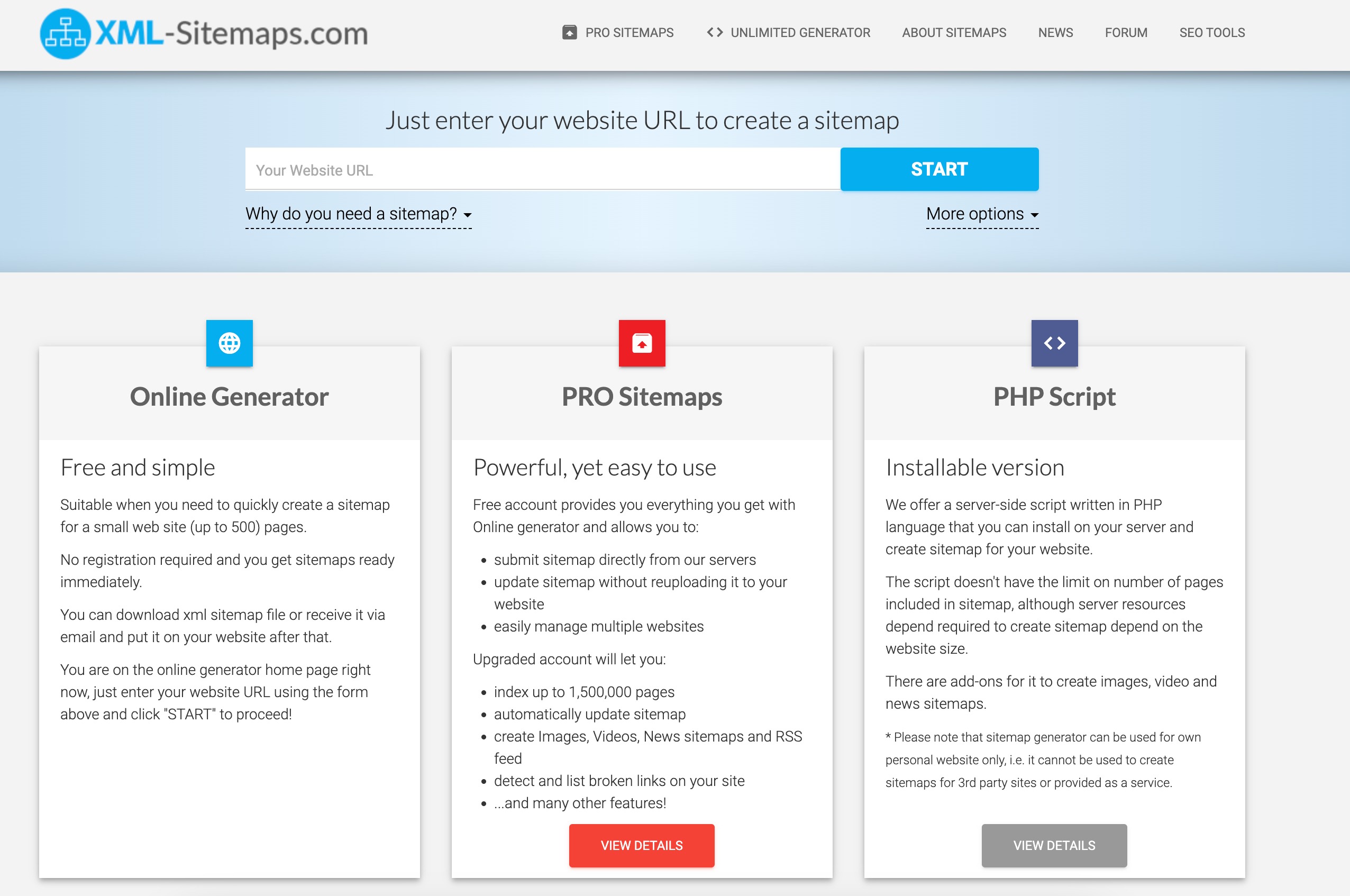
For added flexibility, the tool offers a More options section to customize settings.
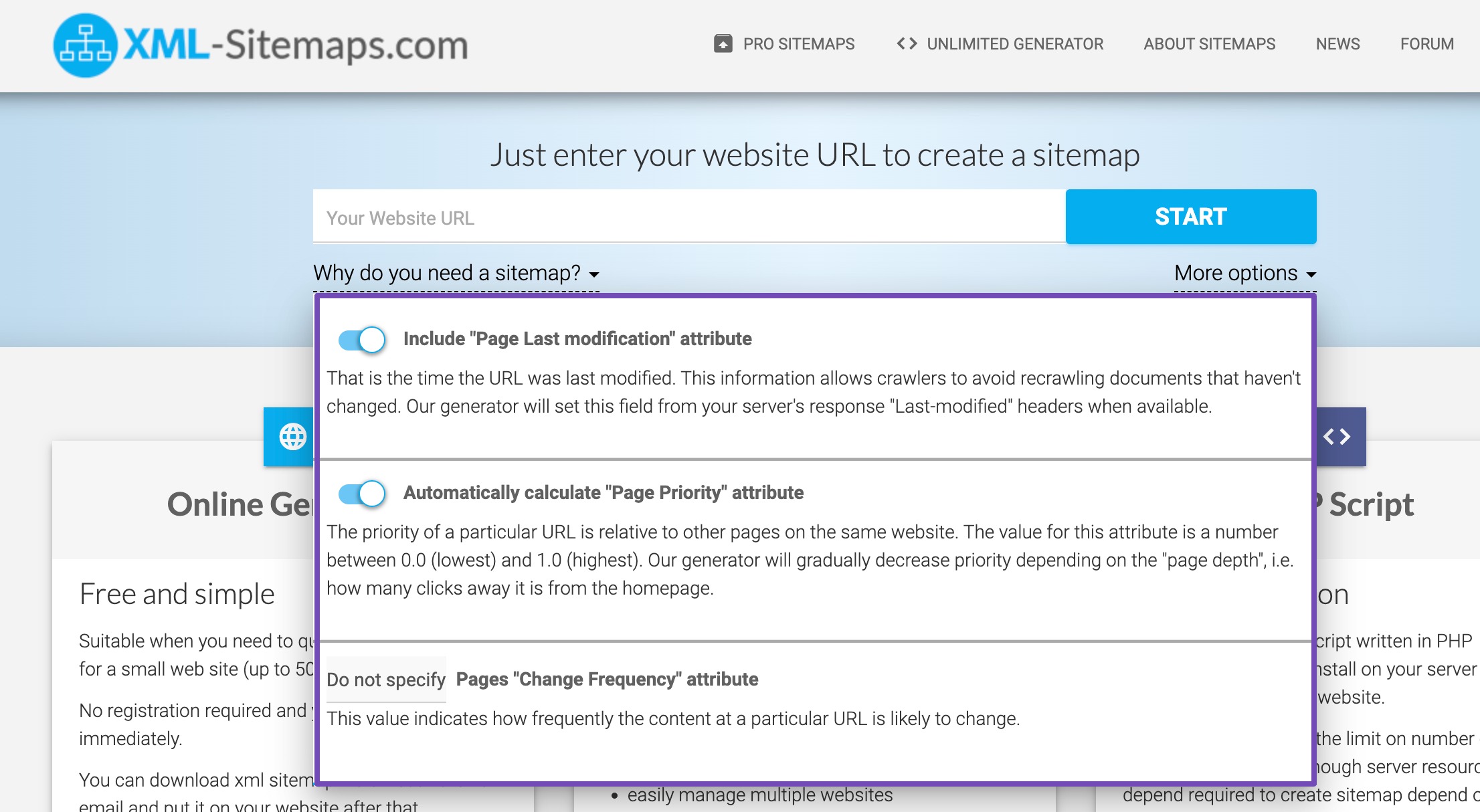
You can include a Last Modified attribute, which helps web crawlers identify unchanged pages and avoid unnecessary recrawling.
Additionally, it allows for the inclusion of an automatically calculated priority attribute, which signals the relative importance of each URL compared to others on your site, helping search engines prioritize content more effectively.
What makes XML-Sitemaps.com even more appealing is its straightforward interface, which requires no registration to use.
2.4 Octopus.do (Web Tool)
Octopus.do is a powerful tool for quickly creating visual sitemaps, perfect for organizing and optimizing your website structure. It offers both free and paid plans starting at $12/month.
With its drag-and-drop visual sitemap builder, you can design your website’s structure, visualize content flow, and plan navigation effortlessly.
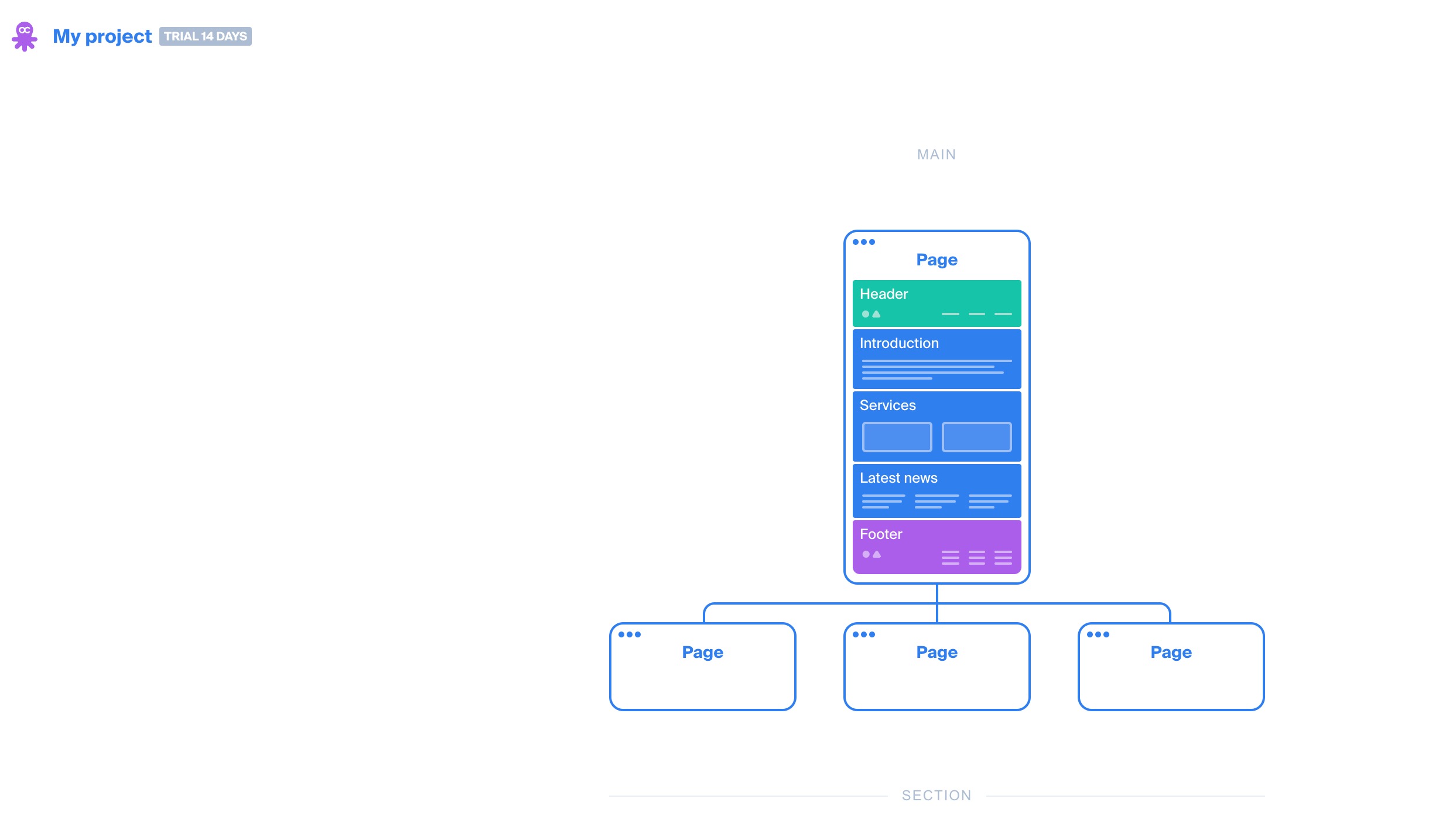
The tool also includes SEO meta tag editing, allowing you to optimize titles, descriptions, and keywords for each page directly within the sitemap to enhance search engine visibility.
For better organization, you can group related pages, prioritize their importance, and identify orphaned content to improve your site’s overall structure.
Octopus.do supports multiple export formats, enabling you to download your sitemap as XML, PNG, PDF, CSV, or TXT, depending on your requirements.
Additionally, it offers robust collaboration features, allowing you to share your sitemap with unlimited collaborators and grant them editing access.
2.5 Screaming Frog (Desktop Tool)
Screaming Frog is known primarily for its site crawling capabilities. Screaming Frog enables you to create detailed XML sitemaps that meet search engine guidelines.
It scans your entire website, identifies all URLs, and provides advanced customization options to ensure the sitemap is as per your needs.

One of Screaming Frog’s key strengths is its flexibility. You can include or exclude specific URLs, set priority and change frequency attributes, and customize other sitemap parameters based on your SEO strategy.
The tool also allows you to generate image sitemaps, which can be particularly useful for websites with significant visual content.
3 Conclusion
Choosing the right sitemap generator tool enhances your website’s SEO and ensures search engines can effectively crawl and index your content.
Using the tools’ capabilities, you can streamline the sitemap creation process, maintain up-to-date sitemaps, and improve your website’s visibility in search engine results.
No matter the size or type of your website, there’s a sitemap generator to help you achieve your SEO goals effectively and efficiently.
If you like this post, let us know by Tweeting @rankmathseo.

